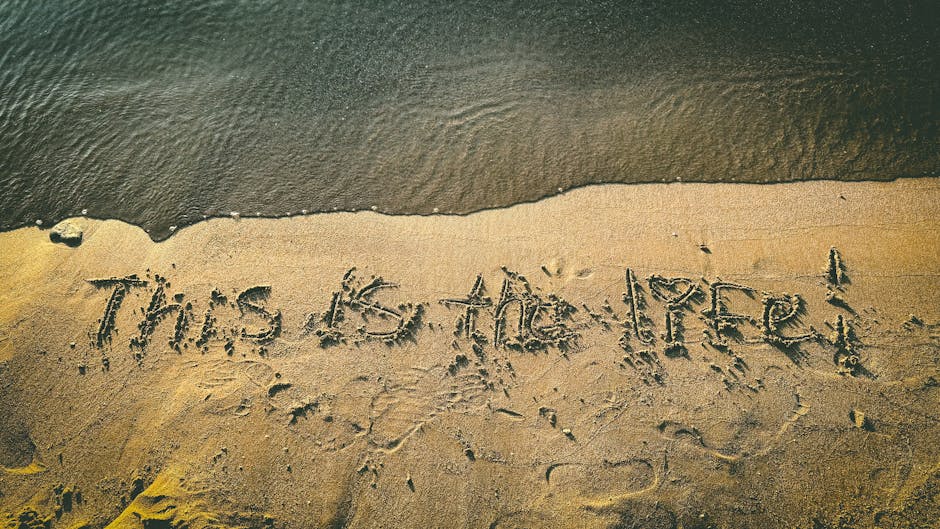Introduction: Why Reader Submissions Matter
Reader submissions aren’t filler—they’re the foundation. In a time where slick headlines and hot takes crowd the feed, raw, first-hand accounts cut through the noise. That’s the power of grassroots writing: it brings stories to the surface that others either miss or choose to ignore. These personal, grounded tales from everyday people often carry more weight than polished editorials.
What makes this unique is the global diversity. One week, it’s a fisher in Kerala writing about disappearing coastlines. The next, a teen in rural Brazil reflects on digital inequality during school lockdowns. These perspectives build a fuller picture of the world—not just for readers, but for editors, policymakers, and even other writers. This isn’t tokenism, it’s essential context.
When hundreds of voices from different regions start echoing similar concerns—or contradictions—that’s how new conversations begin. Submissions don’t just fill pages; they shape the public dialogue. They remind us that behind every headline is a lived experience worth paying attention to.
Theme Spotlight: What Readers Are Talking About
The last few weeks have been a window into what matters most to readers right now—culture, conflict, climate, and community. These aren’t just news trends; they’re lived realities, pieced together from first-person accounts and everyday observations. What sets these submissions apart isn’t flashy writing. It’s raw clarity. When a farmer from Kenya writes about seasonal drought, or a student in Iran describes classroom censorship, the world sees more than headlines—we get context.
One thing that keeps surprising us: where the sharpest insights are coming from. Rural towns in Colombia. Remote islands in the Philippines. Inner-city neighborhoods in Eastern Europe. These are places that get mentioned in global coverage but rarely speak back. When they do, the tone changes. The debate widens. And the narratives, frankly, get better.
We’ve learned to value lived experience over polished opinion. Submissions don’t need to solve global crises—they just need to say, honestly, what it feels like to be there. That kind of truth sticks. It makes the world smaller, and smarter.
Contributors Representing All Corners of the Globe
Over the past quarter, submissions have arrived from every continent but Antarctica. We’ve heard from Nigerian students writing about regional flooding, retirees in Portugal reflecting on intergenerational divides, and Indigenous community leaders from British Columbia sharing stories of cultural resilience. Readers from South Korea, Argentina, and Lebanon have weighed in too, offering grounded perspectives on everything from tech ethics to post-crisis rebuilding.
The demographic range is just as wide: teens with fresh frustrations, mid-career workers finding new purpose, elders remembering how things used to be—and why that still matters. What connects them isn’t who they are, but how they see. Lived experience, filtered through the lens of place, creates texture you won’t find in most traditional media.
Some of the most powerful insights came from readers whose voices don’t usually get airplay. A Syrian schoolteacher detailing life under economic blockade. A young woman in rural India unpacking climate anxiety in her farming community. A reformed gang member in Guatemala reflecting on cycles of violence and redemption. These aren’t polished pundits. They’re people living the stories journalists write about, and they’re telling it in their own words.
This global range isn’t just impressive—it’s necessary. It challenges assumptions. It gives nuance to headlines. And it reminds all of us that truth isn’t a single voice shouting; it’s a chorus, sometimes off-key, but real.
Stories that Stirred Debate and Dialogue
Reader submissions have always had the power to disrupt assumptions, offer new perspectives, and spark meaningful discussion. In recent weeks, several pieces have stood out for their bold narratives and the energetic conversations they inspired.
Challenging Dominant Narratives
Some stories directly confronted widely held beliefs—whether about geopolitics, cultural norms, or environmental responsibility. These submissions didn’t just inform readers; they made them pause, reflect, and often, reassess their own views.
Standout excerpts:
- “I was told for years that war made us strong. But strength, I’ve learned, looks like rebuilding—quietly, slowly, together.” — submission from Ukraine
- “Living through drought in the Horn of Africa isn’t a news story. It’s my daily life, my every decision, and my constant uncertainty.” — submission from Somalia
- “In my city, choosing who to love is still a kind of protest.” — submission from Poland
These firsthand voices brought emotional immediacy and authenticity that traditional reporting often lacks.
How Readers Reacted
The response from our global audience was swift and powerful:
- Comment sections lit up with personal anecdotes, contrasting viewpoints, and heartfelt shares.
- On social media, many readers reposted excerpts with their own reflections, adding layers to the original narratives.
- Guest responses started coming in within days, as readers from other countries wrote in with companion pieces, agreeing, expanding, or respectfully challenging those perspectives.
What Resonates Across Borders
From an editorial perspective, the submissions that reached furthest weren’t always the most polished—they were the most honest, specific, and grounded in lived truth.
What we’ve noticed:
- Authenticity beats sensationalism
- Emotionally complex stories prompt reflection, not just reaction
- Submissions that humbly present one person’s truth often open the door to global empathy
These stories did more than generate clicks—they fostered understanding. And that’s exactly the kind of engagement we aim to amplify.
Common Threads Across Global Submissions
When readers from Sri Lanka to Sweden write in, they’re not just telling unique stories—they’re unknowingly echoing each other. Identity comes up a lot. Who we are, how we’re seen, and what we carry across borders and generations. It’s different in detail, but the core questions feel the same. Inequality shadows these conversations, whether it’s about education, income, or access to truth. And misinformation—whether digital rumor or state-sponsored spin—gets flagged on nearly every continent.
But the real surprise is in the overlap. A woman in rural Brazil and a teenager in Poland both wrote about navigating biased media. A retired teacher in Kenya and a gig worker in Canada shared personal stories about being seen as outsiders in shifting cultural landscapes.
Despite heavy themes, there’s no shortage of grit. Readers don’t just vent—they tell us about what works. Street libraries, student debates, shared meals, safe spaces formed in unlikely places. Small, practical acts of hope surface again and again. This isn’t naive optimism. It’s survival tactics turned into lessons, broadcast one submission at a time.
How We Curate, Edit, and Feature Submissions
We keep our editorial process tight and transparent. Every submission is read by a human editor—no gimmicks, no auto-sorting. We look for clarity in message, fairness in perspective, and most importantly, we try to keep your voice intact. If a piece is raw but powerful, we’ll help tune it without stripping it down.
Accuracy matters. When a submission makes big claims, we ask for context. We fact-check where we need to, but we also recognize the difference between a personal experience and a sourced report. It’s about grounding stories in truth, not sanitizing them for comfort.
Maybe that’s why so many readers come back—not just to read, but to write again. Contributors tell us this is a space where they feel heard on their own terms. No ivory tower, no gatekeeping—just an honest exchange across oceans, ideologies, and lived experience.
Want to Add Your Voice?
We welcome original submissions from anyone with a story to tell or a perspective to share. We’re especially looking for pieces that move beyond surface-level takes. We want stories informed by lived experience, reporting, or deep observation—work that adds something real to the global conversation, not just noise.
Keep the tone honest and grounded. You don’t need to sound like an expert—just make it personal, thoughtful, and clear. Submissions that do well often tackle a specific issue or event but connect it to broader themes that resonate with readers in different corners of the world.
Word count: aim for 800–1,200 words. We’re open to shorter or longer if the content deserves it. All submissions should be original, unpublished work. Include a short bio and where you’re writing from.
Want your piece to land? Read what’s already worked. Strong narrative voice, local color, clear stakes, and global relevance—that’s the mix that sparks dialogue beyond borders.
For more inspiration, check out some Thought-Provoking Editorials on Current Issues.
Final Word: The Strength of Collective Storytelling
In a world getting noisier by the second, listening—really listening—has become a quiet act of resistance. Especially when it’s across languages, time zones, and lived experience. The stories submitted by readers this year have broken through that noise, not because they shouted the loudest, but because they spoke with clarity and purpose.
Reader-powered journalism isn’t just a trend—it’s a shift in who holds the mic. We’re seeing firsthand that when people tell their own stories, the result isn’t just more content; it’s content that connects. Whether it’s a dispatch from a flood-prone village, a personal essay about diaspora identity, or reflections from a frontline protest, these narratives bring shape and nuance to global issues.
If you’ve ever wondered whether your voice matters—yes, it does. Stories can change minds. They can argue with headlines, challenge algorithms, and move people miles from where they started. All it takes is someone hitting send. So here’s our ask: keep writing, keep sharing, and trust that your words make a difference. Because in this space, they absolutely do.


